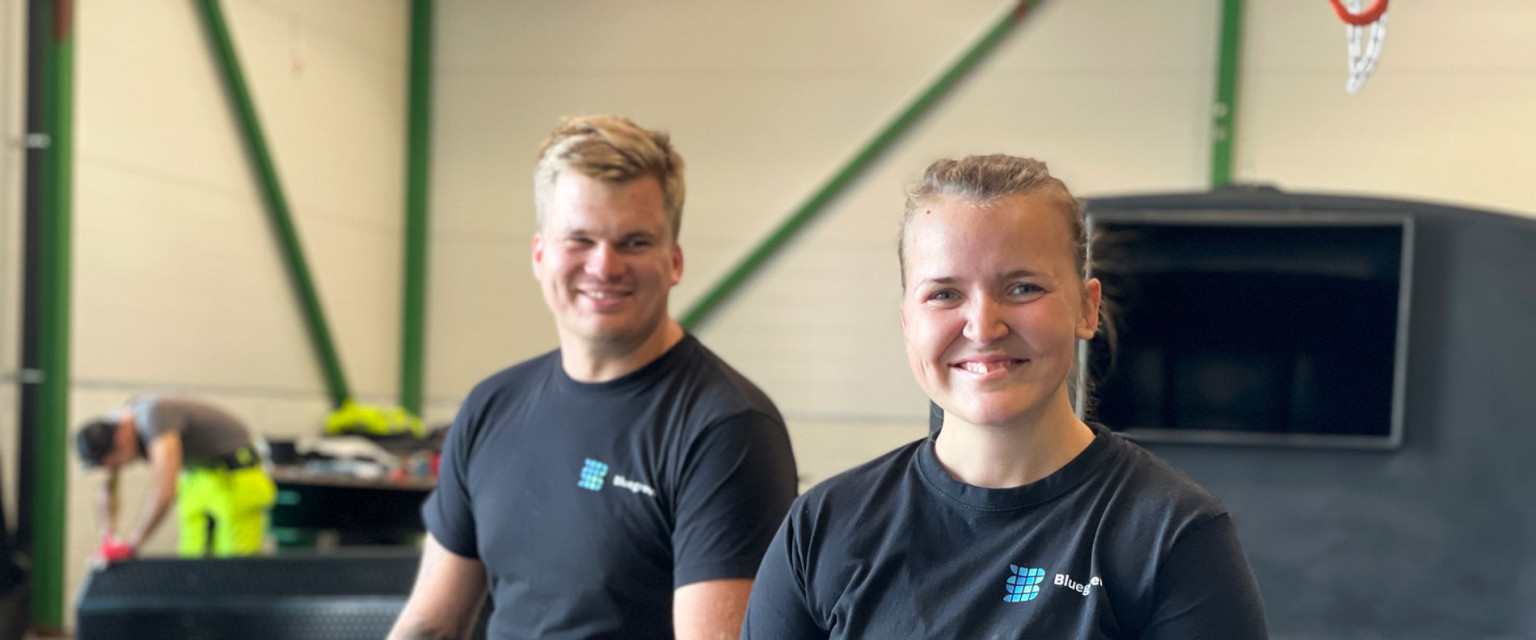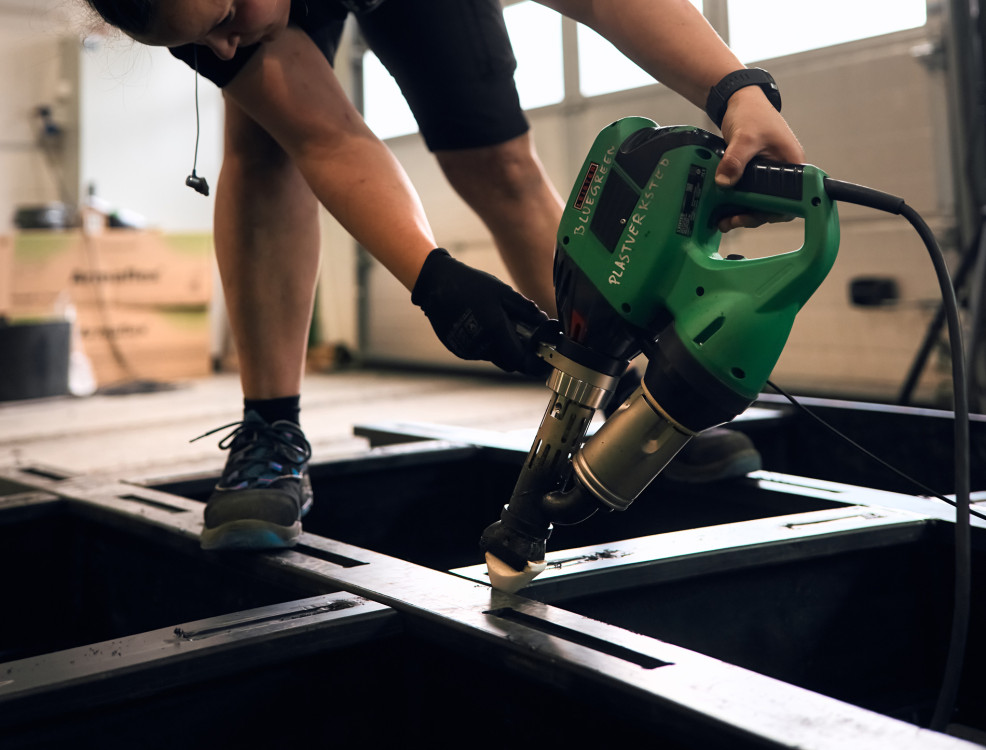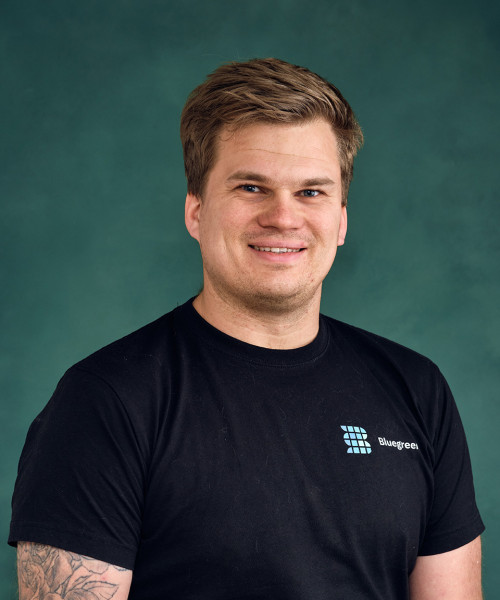To deliver great projects, we depend on skilled people. Plastic mechanic has low awareness, and there is unfortunately little knowledge about thermoplastics in the vocational schools. It is therefore absolutely crucial for us to offer apprenticeship to ensure access to competent workers.

Kristoffer Rønning is workshop manager at Bluegreen, and received his certificate as a plastic mechanic 10 years ago. He had little knowledge of the subject when he started his apprenticeship, but has no regrets. – We don't learn much about plastics at school, and most students at the industrial vocational school want to become industrial mechanics or plumbers. They are well-known vocations, says Kristoffer. – Many people think we work with plastic bags!
Responsibility for providing a complete training
Apprenticeship means that we have the right equipment and qualifications to provide a complete training in our vocation, so that we can meet the goals in the curriculum. The apprentice receives a dedicated mentor who designs the training course and provides ongoing follow-up. At Bluegreen, it is Kristoffer who has this role.
– I have conversations with the Training Office in the county every six months, and regularly log what the apprentice performs of tasks in a web portal. All goals in the curriculum must be reviewed before the exam. We have a great responsibility.
Ensure a competent workforce
The awareness on Plastic Mechanic as a profession is low, so internships and apprentices are strategically important to us in order to raise awareness, increase knowledge - and ensure access to competent labor. – We have substantial growth ambitions, and need skilled workers to reach our goals. We must increase recruitment to the vocation, and to train them, says Kristoffer.
Material of the future
Currently we have one apprentice with us: Ida Nilsen. She has a bachelor's degree in chemistry, but missed practical work and ended up working with plastics by chance.
– Plastic sounded like an exciting material. I have previously worked with steel, but plastic is easier to shape and the work is very varied. We make everything from sewage sumps and ventilation filters to pipe systems, fish farms and pilot plants for CCS / CCU, says Ida enthusiastically. – Working with Carbon Capture is incredibly rewarding. It is future-oriented and sustainable, and I also get to use my expertise in chemistry.
Ida can warmly recommend becoming an apprentice in the plastic mechanics profession at Bluegreen. – You will have a lot of variation, you will work with exciting and future-oriented material and have pleasant and helpful colleagues, says Ida. – Everyone help each other, no challenge is too small or too big.
Ida is looking forward to welcoming Caroline, an apprentice who will start in January. – It is a male-dominated profession, so extra fun with more girls. But guys are fine, too!, Ida laughs.
How to become an apprentice
The most common way to become an apprentice in the plastic mechanics subject are TIP VG1 and Industrial Technology VG2. The Training Office processes applications for apprenticeships, but feel free to contact Kristoffer directly if you have any questions.
– To succeed as a plastic mechanic, you must be creative and good at finding solutions. You must also be precise and have an eye for details. You have to enjoy an unpredictable workday, something new happens all the time. The variety is huge!

